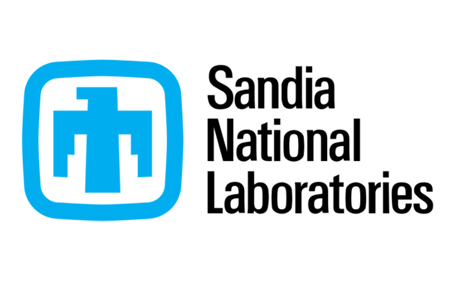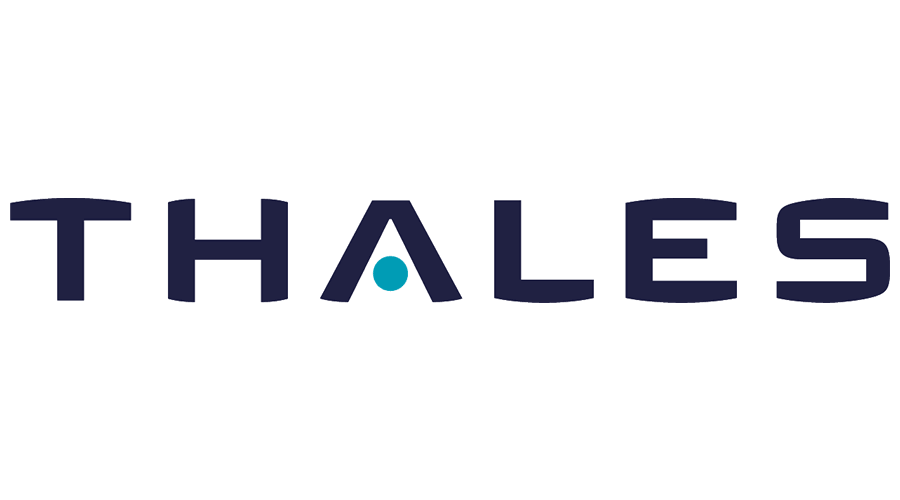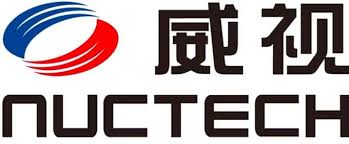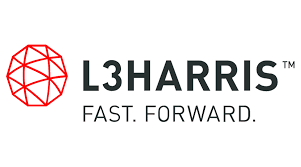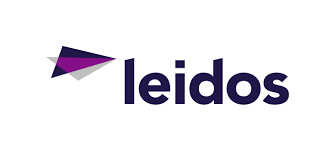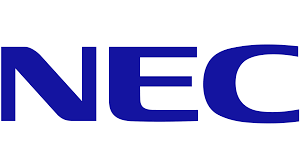Description
![Global Quantum Computing Market Share [%] by Region - 2024 Quantum Computing Technologies & Global Market - 2017-2024](https://hsrc.biz/wp-content/uploads/2018/02/quantom121.png) |
|
Global Quantum Computing Market Share [%] by Region – 2024
|
According to the “Quantum Computing Market & Technologies – 2018-2024”report, the global market* will grow at a CAGR of 24.6% throughout 2018-2024. During 2017 Quantum Computing technologies performance has increased at an impressive rate; we forecast that 2018-2019 will experience a surge of breakthroughs.
We are in the midst of a “Quantum Computing Supremacy Race”, one that will result in groundbreaking computing power that surpasses the performance of digital supercomputers. The quantum computing technologies have the potential to change long-held dynamics in commerce, intelligence, military affairs and strategic balance of power. If you have been paying attention to the news on quantum computing and the evolution of industrial and national efforts towards realizing a scalable, fault-tolerant quantum computer that can tackle problems, unmanageable to current supercomputing capabilities, then you know that something big is stirring throughout the quantum world. In a way that was unheard of five years ago, quantum physicists are now partnering with corporate tech giants, to develop quantum computing capabilities and technologies as the foundation of a second information age. Advances in quantum computer design, fault-tolerant algorithms and new fabrication technologies are now transforming this “holy grail” technology into a realistic program poised to surpass traditional computation in some applications. With these new developments, the key question that companies are asking is not whether there will be a quantum computer, but who will build it and benefit from it.
Realizing quantum computing capability demands that hardware efforts would be augmented by the development of quantum software to obtain optimized quantum algorithms able to solve application problems of interest.

Due to economic interest and the “decline of Moore’s law” of computational scaling, eighteen of the world’s biggest corporations (see image below) and dozens of government agencies are working on quantum processor technologies and/or quantum software or partnering with the quantum industry startups like D-Wave. Their ambition reflects a broader transition, taking place at start-ups and academic research labs alike: to move from pure science towards engineering.
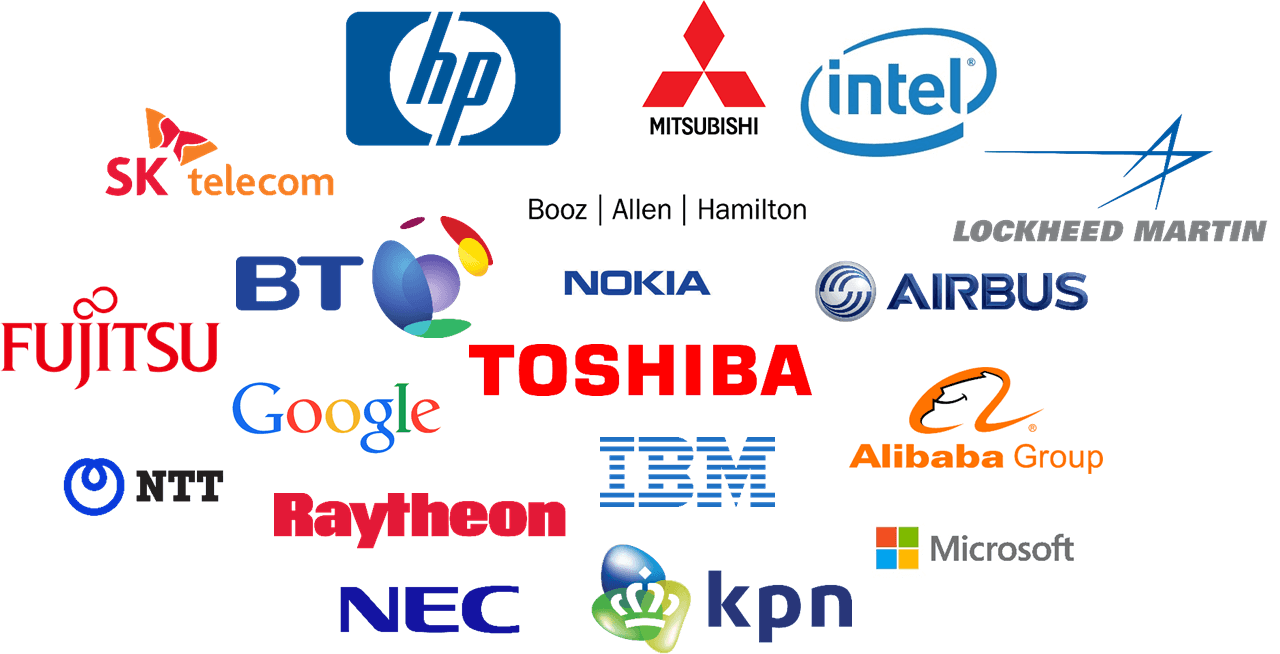
Quantum Computing Race Corporations
Near-term expectations for quantum computing range from solving optimization problems, quantum-encrypted communications, artificial intelligence, smart manufacturing & logistics and smart retail, to quantum computing services in the cloud and molecular structure research.
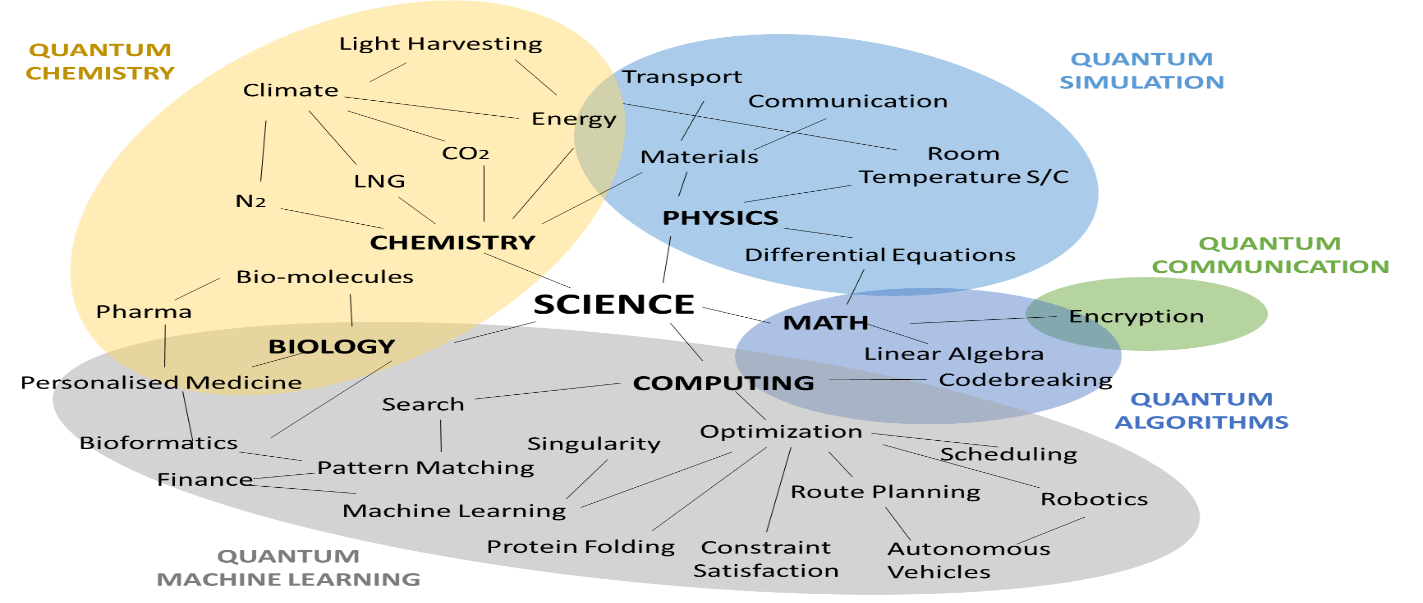
Quantum Computing Will Transform Almost Every Aspect of our Technology, Science, Economy & Life
(Sources – World Economic Forum, HSRC)
Smaller quantum computers will make other contributions to industry (energy, logistics etc.), defense and national security intelligence markets, as well as other markets spanning from drug design to finance.
Even simple quantum computers can tackle classes of problems that choke conventional machines, such as optimizing trading strategies or pulling promising drug candidates from scientific literature.
The fierce competition at the national industrial and academic level is leading to a race for quantum supremacy. The competitors are all worthy of respect, especially because they are striving for supremacy not just over each other, but over a problem so big and so complex, that anybody’s success is everybody’s success.

The 2-volume 529-page landmark report is the only comprehensive review of the global quantum computing market available today. This report is a valuable resource for executives with interests in the market. It has been explicitly customized for industry managers, investors and government decision-makers to enable them to identify business opportunities, emerging applications, market trends and risks, as well as to benchmark their business plans.
Questions answered in this report include:
- What was the global quantum computing market size in 2016-2017?
- What will the global quantum computing market size and trends be during 2018-2024?
- Which are the quantum computing submarkets that provide attractive business opportunities?
- What drives the customers to purchase quantum computing solutions and services?
- What are the quantum computer applications & services trends?
- What are the market SWOT (Strengths, Weaknesses, Opportunities and Threats)?
- What are the challenges to the quantum computing market penetration & growth?
- Who are the industry players?
- How and where to invest in quantum computing industry?
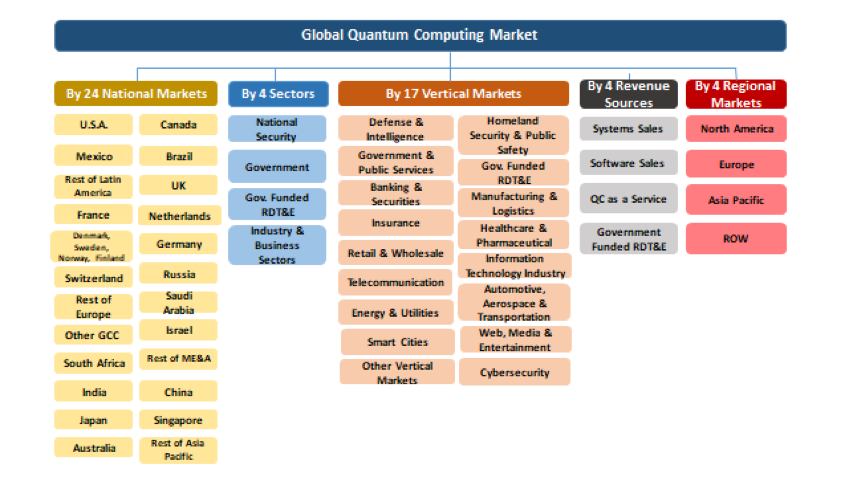
Global Quantum Computing Market Vectors
With 529 pages, 242 tables & figures, this report covers 17 vertical, 24 national, 4 revenue sources and 5 regional markets; offering for each of the 73 submarkets 2016 assessments and 2017-2024 forecasts and analyses.
(*) Including: product & services sales and government-funded research, development, testing and evaluation (RDT&E)
Why Buy This Report?
A. Market size data is analyzed via 5 independent key perspectives.
With a highly fragmented market we address the “money trail” – each dollar spent is analyzed and crosschecked via 5 orthogonal viewpoints:
1] By 24 national markets:
|
|
2] By 4 sectors:
- National Security
- Government
- Gov. Funded RDT&E
- Industry & Business Sectors
3] by 17 vertical markets
|
|
4] By 4 revenue sources
- Systems Sales
- Quantum Software Sales
- Quantum Computing as a Service
- Government Funded RDT&E
5] By 5 regional markets
- North America
- Latin America
- Europe
- Middle East & Africa
- Asia Pacific
B. Detailed market analysis framework includes:
- Business Opportunities
- SWOT Analysis
- Competitive Analysis
- Business Environment
C. 41 Quantum Computing Bids, and Projects Data are provided
D. The report includes the following appendices:
Appendix B: Quantum Information Technologies
Appendix C: Quantum Computing Hardware
Appendix D: Quantum Computing Software
Appendix E: Quantum Encryption
Appendix F: Global 50 Top Supercomputers
Appendix G: Industry Investment in Quantum Computing – 2006-2016
Appendix H: NQIT R&D Projects
Appendix I: Exascale Computing
Appendix J: Market Background by Country
Appendix K: Key Quantum Computing Patents
Appendix L: Links to 31 Quantum Computing Academic Research Centers
Appendix M: Quantum Conferences Links
Appendix N: Glossary
Appendix O: References
E. The report includes over 300 links to the Quantum Computing community information sources
F. The report provides an updated extensive data of the leading 55 Quantum Computing companies:
| 1Qbit Agilent Technologies Aifotec AG Airbus Group Alcatel-Lucent Alibaba Group Holding Limited Anyon Systems, Inc Artiste-qb.net Avago Technologies Booz Allen Hamilton British Telecommunications (BT) Cambridge Quantum Computing Ciena Corporation Cyoptics D Wave Systems Inc Eagle Power Technologies, Inc Entanglement Partners Emcore Corporation Enablence Technologies Finisar Corporation Fuijitsu Limited Google Quantum AI Lab H-Bar Quantum Consultants Hewlett Packard Enterprise Company IBM Infinera Corporation Intel Corporation ID Quantique |
IonQ |
G. The report includes a detailed background of 55 Quantum Computing Business Opportunities by the following Quantum Computing Applications and Vertical Markets:
|
|
H. FAQ
Q1] Why is the quantum cryptography market size not included in this report?
A1] The quantum cryptography market size will be published in a future market report.
Q2] What is the quantum computing market forecast during 2017-2022?
A2] The quantum computing market forecast 2017-2022 is included in the “Quantum Computing Technologies & Global Market – 2018-2024” report.
Q3] How to invest in quantum computing stocks? And, which are the publicly traded quantum computing companies?
A3] Many investors asking these who ask the How to invest in quantum computing stocks? And how to find publicly traded quantum computing companies? These investors are disappointed by the fact that as of May 2017 there are no pure play quantum computing stocks on the any stock exchange. Pure play companies like D Wave are funded by venture capital firms, while the investors community is awaiting D-Wave IPO.
Q4] Who provides the quantum computing project finance?
A4] Quantum computing finance is provided by governments (e.g., China, UK, U.S.A., EU). The lion’s share of Quantum computing finance is provided by 18 leading IT multinationals and the private sector, and finance industry leaders including but not limited to Lawrence Berkeley National Laboratory, Deutsche Bank Securities and the CME Group.
Q5] What are the quantum computer applications?
A5] The report includes detailed information on 55 quantum computing applications (see Chapter G above).
Q6] Which are the quantum computing startups? And, which are the quantum computing companies?
A6] The report provides a detailed information of all 57 (May 2017) quantum computing startups and established quantum computing companies (see a detailed list in Chapter F above and the Table of Contents).
Q7] How to invest in 1qbit stock?
A7] 1qbit is a privately held company.
Q8] Which are the top quantum computing companies?
A8] The information related to the top quantum computing companies is included in the report
Q9] How to invest in Rigetti stock? What is the D wave stock symbol? How to invest in D-wave? How to invest in Qxbranch stock?
A9] The report details how to invest in these companies via their venture capital companies
Q10] What are the Quantum Computing Applications?
A10] The report includes a detailed background of 55 by Quantum Computing Applications and Vertical Markets.




